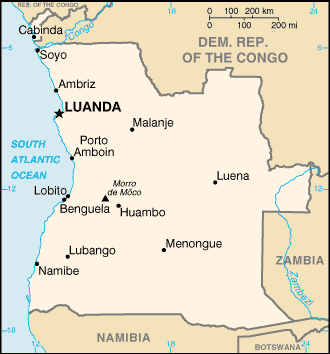Angola

The Republic of Angola has an estimated population of 18.9 million (UN, 2010). The capital is Luanda. Angola has an area of 1.25m sq km (481,354 sq miles). The main languages are Portuguese (official), Umbundu, Kimbundu, and Kikongo.
After its independence, Angola was devastated by 27 years of civil war between the popular Movement for the Liberation of Angola (MPLA) and the National Union for the total Independence (UNITA). It is estimated that 1.5 million people died and 4 million displaced. The country is still in recovery.
Women are under-represented in the Angolan political institutions and violence against women is widespread in the country with a high level of domestic violence.
- Angola ratified the Protocol to the African Charter on Human and Peoples' Rights on the Rights of Women in Africa (The Maputo Protocol) on the 30th of August 2007.
- The Convention on the Elimination of All Forms of Discrimination against Women (CEDAW) was ratified by Angola on the 17th of September 1986.
- Angola has not yet adopted a National Action Plan on United Nations Security Council Resolution 1325 (UNSCR 1325).
- From June 1997 to February 1999, there was a UN peacekeeping mandate: United Nations Observer Mission in Angola (MONUA).
